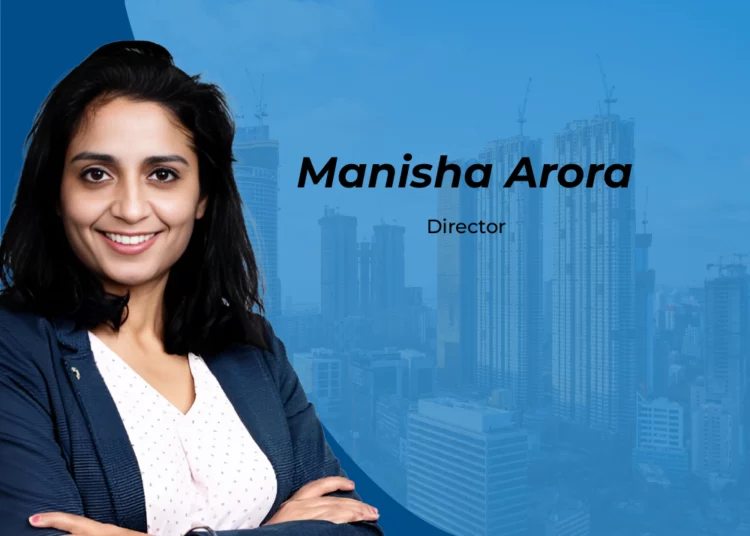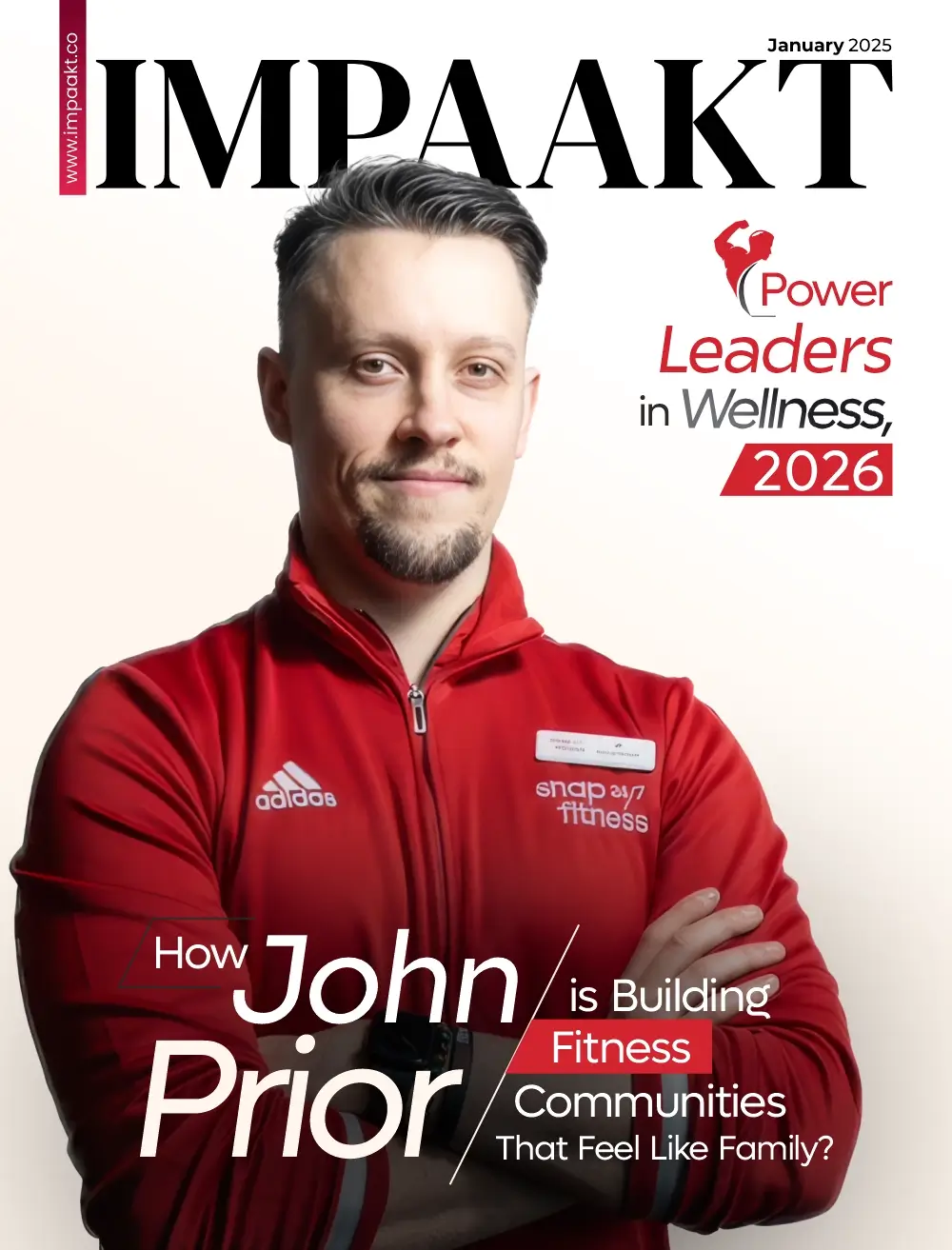When most people hit career roadblocks, they pivot. When Manisha Arora hit them, she transformed them into launching pads. After three startup setbacks, instead of playing it safe, she did something most wouldn’t dare – she became an intern at Bosch, despite having a decade of experience. That bold move kicked off a series of wins that would shape her remarkable journey.
What makes her story truly remarkable isn’t just her professional achievements – it’s her unique approach to growth. She ties her annual goals to her birth year, creates her own rules for success, and champions neurodiversity in tech leadership. In a world of corporate conformity, Manisha stands out as a reminder that the most impactful leaders are often the ones who dare to do things differently.
When we sat down with her to understand her unique approach to career and life, we discovered a story that challenges traditional notions of professional success.
Below are the highlights from the interview:
Manisha, you’ve had a fascinating career trajectory with roles across various sectors. Could you share some key milestones that shaped your professional journey and led you to where you are today?
My career journey has been defined by several significant milestones. The first major turning point occurred in 2012 when I joined Freescale, now NXP. Within a year, I received a promotion, and my compensation was increased three times over the next two years, along with several awards. I was beaming with confidence, so I started my first entrepreneurial venture with my friends. It unfortunately didn’t succeed, and I had consecutive setbacks from two more startups.
I decided to not go back to the corporate and work for a nonprofit for some time until I figured out what to do next. During my stint with an NGO called Atree, being closer to grassroots issues reignited my resilience and passion for creating something impactful. I decided to join Bosch as an intern, despite having a decade of experience in HR, Business and Data. This opportunity led to a life-changing transition, enabling me to become a product manager in 11 months. I was honored to lead the Center of Excellence for IoT and the inaugural Bosch accelerator in collaboration with NASSCOM, India.
In my next stint at Tata Communications, I transitioned into a Product Manager role. There, I got the opportunity to recreate a product I had developed during my startup days- a safety wearable for women. It was serendipity, I felt my learnings from start-up came a full circle!
I had long cherished the idea of an MBA, and after being in corporate for 14 years, it had lost much of its appeal. The next pivotal moment for me was COVID-19- and the tragedy of the global pandemic made me introspect. At the age of 36, I embarked on a full-time MBA at a top 20 business school (Financial Times 2024 ranking). It was a humbling year for me. We carry the confidence that our experience gives us- that we know a lot. During the year, I learnt perspectives from a generation younger than me. MBA gave me a launchpad to move into consulting, yet another new role for me. I moved to London, and I am now focusing on Consulting practice for AI and Governance.
Continuous learning is my life theme as I am a voracious pursuer of knowledge and mind-body alignment. Every year, I connect my goals to my year of birth which I started doing 3 years back. This year alone devoured 41 books, aligning my goals with the body’s rhythm and creating a harmonious balance between mind and body. I also watched 410 TED videos, listened to 410 episodes of Economist Intelligence, enjoyed 410 podcasts (across genres), spent 41 hours in strength training and ran/walked 410 kilometres.
I don’t know if I can keep increasing my goals to match my birth year, I will see how long I can do it!
My journey is filled with many adventure stories, and I am excited to continue moving toward the next milestone.
What are some of the most exciting and challenging projects you’ve worked on? How do you ensure you bring innovative solutions to your clients?
As an Associate Director at LTIMindtree and in some of my previous stints as a product Leader, I’ve had the privilege to work on a variety of exciting and challenging projects across multiple industries. Here are a few highlights from my experience:
Data Transformation for a UK Manufacturing Company: I developed a strategy for launching a SaaS Data Platform across 30 markets, focusing on enhanced user engagement and adoption. The project involved understanding the cultural nuances of each market and establishing a centralized control room to manage the transition while addressing stakeholder concerns and phasing out obsolete tools. It was an incredible learning opportunity across diverse geographies.
Global Logistics and Pallet Network Company: In my role as a Business Transformation Strategist, I concentrated on improving cost efficiency and achieving sustainable savings by formulating a strategy for managed services. The platform we developed aligned business and IT metrics to foster a customer-centric organization.
Multinational Logistics/Supply Chain Leader: As a Product Leader, I spearheaded an AI-enabled predictive warehouse planning and optimization program. This initiative generated millions of euros in benefits annually by implementing an AI image technology-based product fulfilment system, which reduced shelf load time from four days to just one.
To ensure I provide innovative solutions to my clients, I emphasize building collaboration, utilizing storytelling, and developing reusable frameworks, all grounded in human-centred design. These approaches enabled me to deliver tailored, effective solutions that meet my clients’ unique needs
In your opinion, what role do emerging technologies like AI and automation play in shaping the future of consulting? How are you integrating these technologies into your work at LTI Mindtree?
Technologies such as AI, GenAI, quantum computing, the Internet of Things, autonomous vehicles, personalized medicine, neuromorphic computing, voice-activated technology, wearable tech, extended reality, and many others are pivotal in shaping the future of technology and consulting.
My work spans various sectors, primarily focusing on ethical practices and governance frameworks in these areas. I firmly believe that these technologies can greatly benefit the tech and consulting industries by enabling humans to concentrate on more strategic work that has the potential to change the world.
My organization’s employees have access to copilot, we use it to reduce time spent on day-to-day operational tasks. We use the time saved for building strategic work using in-house AI tools. My organization has focused on developing GenAI skills for the internal workforce and has made many pieces of training and certifications available to us. Some of us, including me, are ISO 42001 2023 certified to enable all the AI tools within the organization and we now help other organizations understand the ethical practices of AI in a better way.
As a woman in a leadership role within the technology sector, what challenges have you faced, and how have you overcome them? What advice would you give to other women aspiring to leadership positions in tech?
I have encountered various challenges, some of which are common to all, some unique to gender and then some unique to me.
Common challenges were managing work pressure, and navigating the complexities of different locations—from Pune and Gurgaon to Noida, Mumbai, Bengaluru, and even Madrid, Frankfurt, and London.
I encountered gender specific challenges as I became more tenured. Like many women, I faced insubordination challenges from some of my male reportees. One time I had a challenge with the mindset of my supervisor. These issues create toxicity in the work culture and are hard to improve. For those who can’t thrive in negativity, staying in such an environment takes away all the joy and willpower of working. The mind goes to flight response, as fighting is impossible. My advice in these scenarios is- don’t leave without giving feedback to HR/leadership. Even if the situation for me is unsalvageable, my feedback might just trigger the change for those to come after.
I am on the ADHD spectrum, so that is a challenge unique to me. My advice to neuro-diverse women aspiring to leadership positions in tech is to believe in themselves, actively seek mentorship, and continuously strive to become better versions of themselves.
Consulting often involves solving complex business problems. Can you share an example of a particularly challenging problem you helped solve, and what innovative approach you used?
A few years ago, I encountered a significant challenge when I was assigned to launch a product focused on women’s safety and asset-tracking devices. The project came with a considerable budget of $100 million for R&D and a tight deadline of just eight months for the launch. I successfully managed a diverse team spread across various locations, collaborating with vendors from Gujarat, hardware developers from Paris, manufacturers from Korea and China, and software developers from Chennai. Despite the hurdles of remote work and coordination, I was able to launch the product on schedule, achieving a high success rate in user testing and securing the necessary certifications. To this date, I consider it the most challenging and exciting experience of my career.
What do you think the industry can do better to empower more women to take leadership roles in technology, and how can organizations lead that change?
To encourage more women to take on leadership roles in technology, the industry must focus on creating inclusive and supportive environments, as well as providing mentorship and sponsorship opportunities. In my current organization, for example, we have sponsorship programs designed to foster individual growth, which has enabled me to upskill and earn numerous professional certifications over the past 2.5 years. All global organizations can facilitate this change by implementing policies that support work-life balance, offering leadership development programs tailored for women, and fostering a culture of inclusion and respect.
When you look back on your career, what kind of legacy do you hope to leave behind in the broader consulting and tech space?
As I reflect on my career, I aspire to leave a legacy of perseverance, innovation, and ethical leadership in the tech and consulting fields. I also hope to be remembered for my contributions to the education of disabled and neurodiverse children, my efforts to empower women in technology, and my dedication to creating an impactful, sustainable, and ethical world.
For young women and aspiring leaders in tech or consulting, what is the one piece of advice you wish someone had given you earlier in your career?
At my workplace, I try to be me, and I learnt this very late in my career due to lack of female role models. But once I learnt that, navigating and climbing the leadership ladder became a bit easier. I always advise- do not emulate the male leaders blindly. If everyone behaves like male leaders, why would we need diversity? We need more empathy and collaboration in the workplace. Male leaders also need to learn from women leaders, that’s what the real diversity in the workplace is.
I also wish someone had encouraged me early in my career to seek out a mentor. I can’t emphasize enough the significance of finding a mentor early. I have always valued mentorship and have had mentors for the last few years specifically during my startup days. However, last year, I decided to take a different approach by reaching out to senior management within my organization. This initiative allowed me to gain a better understanding of the inner workings of the company and increase my visibility, which is often lacking beyond skip-level interactions.
This effort not only led me to secure a highly strategic project with a client—thanks to my regular discussions with senior management—but also resulted in one of my mentors nominating me for one of the top tech women awards in the UK for 2024, which I ultimately won. From my experience, mentors can significantly accelerate your career growth in ways that are often impossible to achieve on your own.
To summarize, be who you are, be the inspiration, not the follower and always have a mentor as a guiding light. It’s only lonely at the top when your mind is closed.
As you look to the future, what excites you the most about the direction of the consulting industry? What are your goals and aspirations for the next phase of your journey?
Looking ahead, I am excited about the possibilities that AI offers, particularly in terms of ethics and governance. My goals for the next phase of my journey involve immersing myself in the AI governance ecosystem and concentrating on the development of AI ethics, governance policies and frameworks. I firmly believe that when AI is implemented responsibly, it can empower consultants to engage in more strategic work and foster positive change for humanity.
AI holds immense promise, but only when handled with care. I see significant benefits for the consulting industry as AI becomes more prominent, allowing us to shift our focus towards more strategic initiatives, especially within the ethics and governance landscape.

 More about Manisha Arora
More about Manisha Arora










